★½
“Ze German WW2 Chainsaw Massacre”
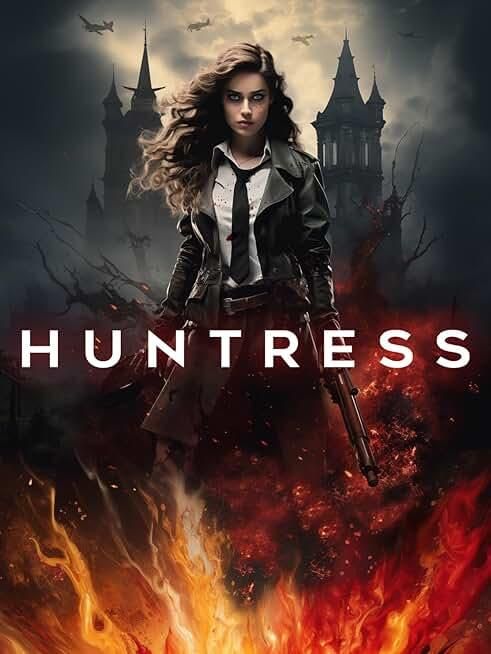 The Texas Chainsaw Massacre was fairly notorious in Britain in the eighties and nineties, being famously banned on video. Naturally, this meant I had to see it, and… I was initially underwhelmed. However, I’ve gradually come to appreciate its raw intensity over the years. If I ever doubted its merits, watching this largely shameless knockoff should act as a reminder. Because it shows how flat and uninteresting the premise can be, when executed poorly. This relocate things from seventies Texas to Germany in the last days of World War II. A medevac team is trying to get injured and grumpy officer, Colonel Franklin (Christian) to a hospital before his leg falls off from sepsis.
The Texas Chainsaw Massacre was fairly notorious in Britain in the eighties and nineties, being famously banned on video. Naturally, this meant I had to see it, and… I was initially underwhelmed. However, I’ve gradually come to appreciate its raw intensity over the years. If I ever doubted its merits, watching this largely shameless knockoff should act as a reminder. Because it shows how flat and uninteresting the premise can be, when executed poorly. This relocate things from seventies Texas to Germany in the last days of World War II. A medevac team is trying to get injured and grumpy officer, Colonel Franklin (Christian) to a hospital before his leg falls off from sepsis.
Along for the ride are nurses Ellie (McDowell) and Annie (Sarah Hawthorne), a pacifist medic, Will (Sohns), and a couple of GIs to provide protection. It’s not long before they run into trouble and out of fuel. Fortunately – or so it seems initially – they encounter friendly, and attractive local, Helga (Savage) who gives them her homemade sausages and says she has plenty of gasoline at her house, just over this way a bit. If you have read the opening paragraph, you’ll be able to work out where the rest of the film is going. Let’s just say, the moral of the story is: do not accept smoked meats of unknown provenance, from strange women in the middle of woods. Truly, words to live by.
Yeah, turns out she is the acceptable face of a family of psychos, along with sister Greta and mother Ursula. Or maybe it’s the other way round, I forget. Naturally, the convoy members enter the house in easily disposed of ones and twos, with an utter disregard for military protocol. For example, another moral might be, don’t drop your guard in order to slow-dance with mysterious veiled women, in the middle of large, spooky houses during wartime. Only bad things can come of it. The consequences are, a great deal of slowly creeping about corridors, which the makers mistakenly think generates tension. It actually generates tedium. I mean, Colonel Franklin has an excuse, having been shot in the leg. Everyone else? Not so much.
It’s not a terrible idea, and the performances are largely serviceable. However, the parallels to Texas become more blatantly apparent, the deeper we get, all the way until a final shot which is utterly a gender reversed clone of that in TCM. But rarely does this come anywhere close to capturing the same sense of unfettered insanity. If you’re going to try and ape a stone-cold horror classic, you have to bring your A-game, because otherwise, the comparisons will do you absolutely no favours. Instead, I was more left wondering how people go from running along a corridor in one shot, to being chased through the woods in the next. This one is a nightmare, alright. Just in all the wrong ways.
Dir: Matthew M. Howe, J. Christian Ingvordsen
Star: John Christian, Braxton Sohns, Maggie McDowell, Violet Savage





 I’m very cautiously giving this one our middest of mid-tier ratings, which I reserve the right to change in future. Because this one showed up on one of the… “less official”, let’s say Chinese movie channels on YouTube. While the likes of Youku and iQiyi make the effort to deliver subtitles which are typically at least intelligible, I’d say the subs here reached such a level, only about one line in five. Then I still had to figure out cultural context for this period piece, which also seemed to reference local folklore. I guess I should be grateful the soundtrack here was intact. The previous night, I’d watched another film on the same channel which, I kid you not, had random bursts of musak injected, presumably to avoid YouTube’s automated copyright system.
I’m very cautiously giving this one our middest of mid-tier ratings, which I reserve the right to change in future. Because this one showed up on one of the… “less official”, let’s say Chinese movie channels on YouTube. While the likes of Youku and iQiyi make the effort to deliver subtitles which are typically at least intelligible, I’d say the subs here reached such a level, only about one line in five. Then I still had to figure out cultural context for this period piece, which also seemed to reference local folklore. I guess I should be grateful the soundtrack here was intact. The previous night, I’d watched another film on the same channel which, I kid you not, had random bursts of musak injected, presumably to avoid YouTube’s automated copyright system.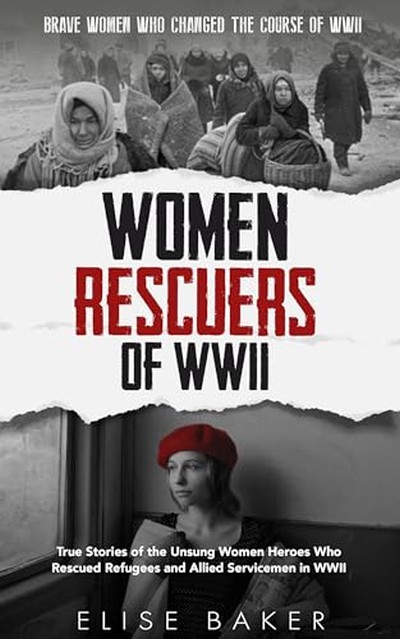 With the somewhat accurate and rather clunky sub-title of “True stories of the unsung women heroes who rescued refugees and Allied servicemen in WWII”, this is a book whose idea I liked rather more than the execution. The core is six chapters, each devoted to a woman or pair of women, who operated before and around World War II, mostly helping refugees to escape the Nazi regime as it swept across Europe. Every chapter has the same structure. Each begins with ‘The Threshold’, describing how they came to take on that role; then ‘The Move’, covering their heroic activities; and finally, ‘The Close’, detailing what happened to them afterward.
With the somewhat accurate and rather clunky sub-title of “True stories of the unsung women heroes who rescued refugees and Allied servicemen in WWII”, this is a book whose idea I liked rather more than the execution. The core is six chapters, each devoted to a woman or pair of women, who operated before and around World War II, mostly helping refugees to escape the Nazi regime as it swept across Europe. Every chapter has the same structure. Each begins with ‘The Threshold’, describing how they came to take on that role; then ‘The Move’, covering their heroic activities; and finally, ‘The Close’, detailing what happened to them afterward. This is the story of Syrian sisters Yusra Mardini and her sister Sarah, played by real-life sisters Nathalie and Manal Issa. Growing up, they were trained by their father, a professional swimmer himself, and had the goal of reaching the Olympics for their country. The (still ongoing) Syrian Civil War led to the sisters leaving their homeland, and this is mostly the story of their journey, through Turkey, across the Mediterranean in a
This is the story of Syrian sisters Yusra Mardini and her sister Sarah, played by real-life sisters Nathalie and Manal Issa. Growing up, they were trained by their father, a professional swimmer himself, and had the goal of reaching the Olympics for their country. The (still ongoing) Syrian Civil War led to the sisters leaving their homeland, and this is mostly the story of their journey, through Turkey, across the Mediterranean in a 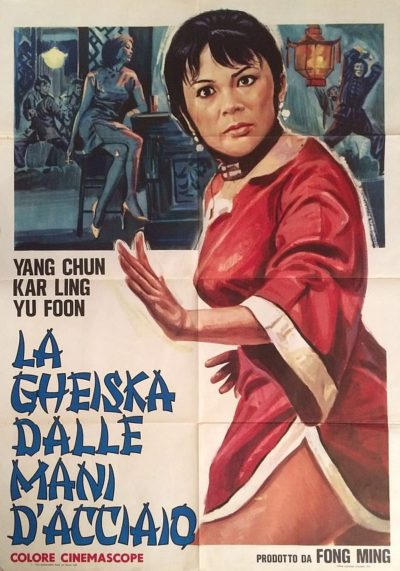 I’m just going to begin by quoting the opening credit titles. Spelling, grammar and punctuation as received. “At the early stage of Republic of China, Yuan Hsi Hai wanted to rebel the democratic government & be the king. But there were 300,000 soldiers at Yuan Wan under the command of General Tsai obstructed his desire, so he cheated General Tsai to Peking & confined his movements. So Yuan who lived in Chu Jen Hall could fulfil his ambition but…” I reproduce this because, to a large extent, that’s everything I’ve got in terms of the over-arching plot here. It’s all about Tsai (Kwan) getting out of the city, in order to lead his troops and, presumably, frustrate Yuan’s dictatorial ambitions.
I’m just going to begin by quoting the opening credit titles. Spelling, grammar and punctuation as received. “At the early stage of Republic of China, Yuan Hsi Hai wanted to rebel the democratic government & be the king. But there were 300,000 soldiers at Yuan Wan under the command of General Tsai obstructed his desire, so he cheated General Tsai to Peking & confined his movements. So Yuan who lived in Chu Jen Hall could fulfil his ambition but…” I reproduce this because, to a large extent, that’s everything I’ve got in terms of the over-arching plot here. It’s all about Tsai (Kwan) getting out of the city, in order to lead his troops and, presumably, frustrate Yuan’s dictatorial ambitions. This is a fairly classic “rise from nowhere” story, yet is well-executed and done in a world which is interesting for its differences. The heroine is – surprise! – Marilia, whom we first meet on the battlefield, about to face an opponent of superior numbers. We then flash back to her childhood, growing up in a Tyracian brothel. Her mother was one of the “painted ladies,” but after she dies, Marilia and her brother Annuweth are on increasingly thin ice. Their effort to run away is unsuccessful, yet does bring them a chance at a new life. While it’s here that Marilia discovers her tactical savvy through board games, it’s not without its downside, the siblings being split up after Marilia enters an arranged marriage in another territory.
This is a fairly classic “rise from nowhere” story, yet is well-executed and done in a world which is interesting for its differences. The heroine is – surprise! – Marilia, whom we first meet on the battlefield, about to face an opponent of superior numbers. We then flash back to her childhood, growing up in a Tyracian brothel. Her mother was one of the “painted ladies,” but after she dies, Marilia and her brother Annuweth are on increasingly thin ice. Their effort to run away is unsuccessful, yet does bring them a chance at a new life. While it’s here that Marilia discovers her tactical savvy through board games, it’s not without its downside, the siblings being split up after Marilia enters an arranged marriage in another territory.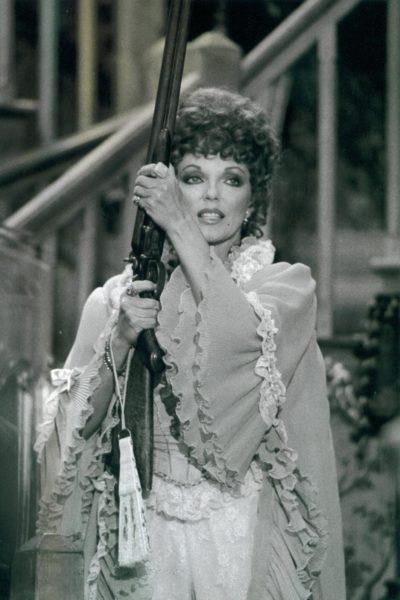 This sprightly TV movie from 1982 boasts a rather decent cast and, at least in the first half, manages to go in unexpected and interesting direction. It does end up descending into rather familiar territory thereafter, and the finale doesn’t manage to be as rousing as it should be. Yet it managed to keep my interest, and as this genre goes, that probably makes it better than average. It takes place in the last stages of the American Civil War, when the Southern women of Sweetwater have been left bereft of men, after the Confederate Army has recruited them all to their cause. Newly arrived in town is doctor Maggie McCulloch (Barnes), who has arrived to help her ailing aunt, Annie (Collins). She is shocked to discover Annie is less the mine owner touted in her letters, and more the owner of the town brothel.
This sprightly TV movie from 1982 boasts a rather decent cast and, at least in the first half, manages to go in unexpected and interesting direction. It does end up descending into rather familiar territory thereafter, and the finale doesn’t manage to be as rousing as it should be. Yet it managed to keep my interest, and as this genre goes, that probably makes it better than average. It takes place in the last stages of the American Civil War, when the Southern women of Sweetwater have been left bereft of men, after the Confederate Army has recruited them all to their cause. Newly arrived in town is doctor Maggie McCulloch (Barnes), who has arrived to help her ailing aunt, Annie (Collins). She is shocked to discover Annie is less the mine owner touted in her letters, and more the owner of the town brothel.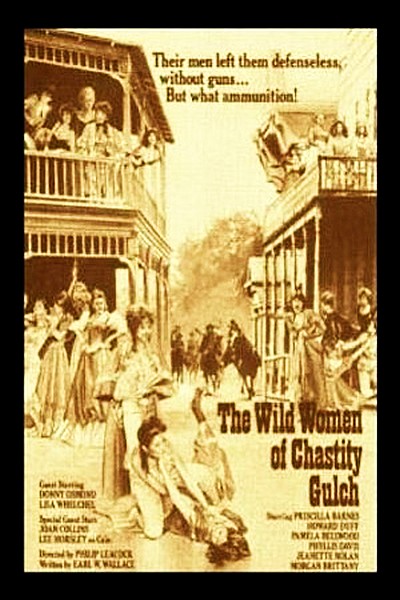 That aside, the plot unfolds largely as you’d expect. There’s the initial tension between whores and housewives, and the women struggle to come to terms with the everyday business of running the town. For example, there’s a fire drill, which ends up with half the ladies thrashing around in shallow water, and some other slapstick involving whitewash, that is somewhere between lightly amusing and embarrassing. However, Barnes – at the time a sitcom star in Three’s Company – does a very good job of keeping the film grounded, and the supporting cast help admirably in that aspect. Collins is particularly good, projecting an attitude which clearly proclaims she will take no shit from anyone.
That aside, the plot unfolds largely as you’d expect. There’s the initial tension between whores and housewives, and the women struggle to come to terms with the everyday business of running the town. For example, there’s a fire drill, which ends up with half the ladies thrashing around in shallow water, and some other slapstick involving whitewash, that is somewhere between lightly amusing and embarrassing. However, Barnes – at the time a sitcom star in Three’s Company – does a very good job of keeping the film grounded, and the supporting cast help admirably in that aspect. Collins is particularly good, projecting an attitude which clearly proclaims she will take no shit from anyone.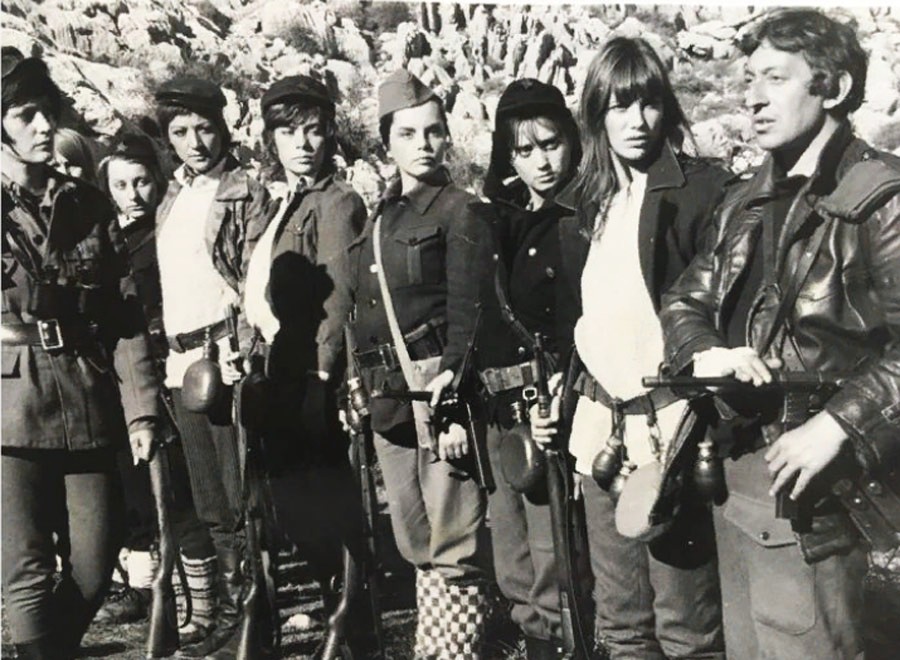 ★★
★★ There seem to have been quite a few movies out of Europe over the past couple of years, about the female soldiers fighting in Kurdistan for independence with the PKK and related groups. French films
There seem to have been quite a few movies out of Europe over the past couple of years, about the female soldiers fighting in Kurdistan for independence with the PKK and related groups. French films  I have always been intrigued by alternate histories. These are bits of speculative fiction, which are based on a “What if…?” premise. For example, what if Napoleon had won the Battle of Waterloo? Or what if John F. Kennedy’s assassination had failed? Creators speculate on the way the world might have changed, in ways big and small. I find such creations endlessly fascinating, giving me a strong suspicion that, at certain points, history teeters on a razor’s edge, where a seemingly insignificant event can have an impact far beyond its scale. Here, it’s a single person who changes the course of history. For what might have happened, had Joan of Arc turned up, not in medieval France, but in Russia, during the aftermath of the 1917 revolution?
I have always been intrigued by alternate histories. These are bits of speculative fiction, which are based on a “What if…?” premise. For example, what if Napoleon had won the Battle of Waterloo? Or what if John F. Kennedy’s assassination had failed? Creators speculate on the way the world might have changed, in ways big and small. I find such creations endlessly fascinating, giving me a strong suspicion that, at certain points, history teeters on a razor’s edge, where a seemingly insignificant event can have an impact far beyond its scale. Here, it’s a single person who changes the course of history. For what might have happened, had Joan of Arc turned up, not in medieval France, but in Russia, during the aftermath of the 1917 revolution?